Since 2010, Peace and Conflict students have been going out into the world with qualifications from Te Ao o Rongomaraeroa | National Centre for Peace and Conflicts Studies.
We endeavour to keep in touch with our graduates and are always keen to hear where the post-study journey takes them.
Matt Fuller
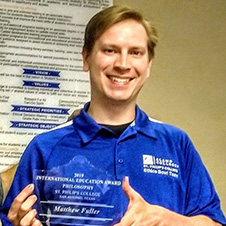
Matt Fuller began his PhD with the National Centre for Peace and Conflict Studies in February 2020. Matt's dissertation explores the nature of effective campaigns to ban weapons, the creation of weapons taboos, and the ongoing struggle to investigate the harm caused by Depleted Uranium, ultimately leading to the question “Why do some weapons get banned and others do not?”
Matt's career has taken him in many directions. Born and raised in Virginia in the United States, he has been a Programme Assistant at the Corrymeela Peace and Reconciliation Centre in Northern Ireland, a video editor for the Democracy Development Programme in South Africa, and a Philosophy Lecturer at St. Philip's College in San Antonio, Texas, USA. He has an MA in Ethics, Peace and Global Affairs from American University in Washington, DC. As a lecturer he presented and published on a diverse array of topics, such as the ethics of driverless cars, isiZulu poetry in Post-Apartheid South Africa, the level of confidence in the current Northern Irish peace process, and the creation of the Islamic State, the Irish Republican Army, and the Ulster Volunteer Force. His advisor is Dr. Richard Jackson.
Ashley Galbreath
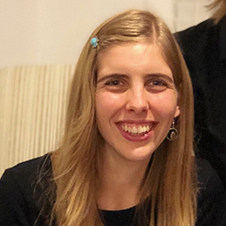
Ashley started the PhD program at the National Centre for Peace and Conflict Studies in September 2020. She is originally from Perth, in Western Australia, and prior to moving to Dunedin to undertake the PhD program, she was working as a social worker with Housing First, in Auckland. She has also previously worked on: activist campaigns with Amnesty International Australia; as a community organiser; with vulnerable youth; with asylum seekers; and with rough sleepers.
Ashley's PhD research is on community-based conflict prevention, which she terms Proactive Peace Work. Her research has a specific focus on how communities foster peace and address conflict risk-factors before any violence is able to occur. So often, peace-work is not looked at until after violence has started. This research seeks to highlight the successful preventative work that is happening all the time, with a view to understanding how it can be strengthened.
Kalika Kastein
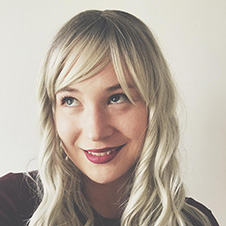
Kalika Kastein is an educator, peace advocate, and visual media specialist. She is the founder of the student-run peace association and online journal, Ad Pacem. Kalika is currently a Ph.D. student at the National Centre for Peace and Conflict Studies at the University of Otago and works remotely as a communications assistant in the Division for Prosperity at the United Nations Institute for Training and Research in Hiroshima. She also is a Girl Guides leader in Dunedin and volunteers with education-based peace initiatives in Hawai'i.
She is a certified teacher in Hawai'i, having earned her Master of Science in Education from Johns Hopkins University. Kalika holds a Master of Arts in Peace Studies from International Christian University in Japan which was funded by the Rotary Peace Fellowship. She also was a volunteer in the Peace Corps (Cameroon, 2011-2013), a Teach for America corps member, and was nominated as a Duke University Humanitarian Action Fellow.
Her writing has appeared in the national newspaper for the Federated States of Micronesia, the Kaselehlie Press, and has been featured in the St. Gallen Symposium's annual selected essays. She received a best speaker award at the 2019 Jean-Pictet International Humanitarian Law Competition and placed in the semi-finalist round with her team at the 2018 national ICRC Moot Competition in Japan.
Kalika's research started in 2020, funded through the University of Otago Doctoral Scholarship, and focuses on understanding forms of silence among teaching staff within institutions of higher education.
Shirley Gabriella Achieng'
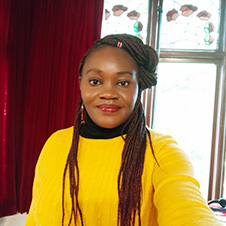
Shirley Gabriella Achieng' is a New Zealand Commonwealth scholarship student, currently pursuing a PhD in Peace and Conflict Studies at the University of Otago- National Centre for Peace and Conflict Studies. Her background is in Political Science and International Relations- Diplomacy & Foreign Policy. She is interested in Counter Terrorism Studies and her current research focuses on counter-terrorism in Kenya.
In Kenya, Shirley worked with the legislative arm of the Nairobi County Government, responsible for formulation of laws aimed at regulating the conduct of activities in the County and provision of oversight functions. Shirley has experience in policy scrutiny and consideration of Statutory Instruments.
Shirley is passionate about peace and security research and is keen on contributing to the discourse of counter-terrorism and its role on national security policy development.
Sanjana Hattotuwa
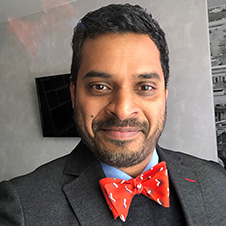
Sanjana's research aims to look at how conversations are created, spread and engaged with within social media groupings, platforms and virtual collectives. By extension, the research will contribute to research on how distinctions made between what's real (in the physical domains) and what's not or just online (in virtual domains) breaks down in the face of Sri Lanka's contemporary media landscape. Existing studies of networked and networking power (looking at how people interact in very large-scale in networks, and the power inherent in these networks) form the basis for Sanjana's frames of analysis.
Since the Presidential Election in January 2015, significant socio-political and religious processes and events in Sri Lanka have been shaped – to a greater or lesser degree - by content generated, disseminated and engaged with on social media, in both the vernacular (Sinhala) and English. 2015's Presidential Election is used as a starting point for the research for two key reasons. One, its historic nature, resulting in the election of a new Executive President who promised and initially provided a clear break from a decade of authoritarian, illiberal rule. Two, the degree to which social media facilitated the organisation of democratic dissent in the lead-up to the election, in a highly censorious context where all traditional media were tightly controlled by the incumbent government.
With emerging research indicating that violence and peace are increasingly constructed in or through digital platforms, the research is anchored to how at scale (in the aggregate of the records created, content produced and interactions made), the study of social media can provide deep, meaningful and relevant insights into democracy and its discontent, as well as peace and its drivers.
The research is anchored to three broad areas of inquiry and study:
- To what degree and in what ways does social media, operating in Sinhala and English, trigger, exacerbate violence and at other times, strengthen peace and democracy?
- How, and to what degree, is social media, in both Sinhala and English, used by actors aiming to bolster authoritarian governance in Sri Lanka and by actors seeking to resist authoritarianism and advocating for greater democratic accountability?
- How are these social media-driven perceptions impacting post-war socio-political relations in Sri Lanka?
Researching these areas of study will meaningfully and substantively contribute to on-going efforts by individuals and institutions in civil society to leverage the transformative power and potential of social media. The research questions emphasise the importance of content on or over social media in how the country sees and speaks to itself, today and into the future. Additionally, the research aims to show how and to what degree the influence of content on social media extends far beyond those who are directly part of and contribute to it, to those who do not have an active social media account.
Dr Ajirapa Pienkhuntod
Ajirapa Pienkhuntod undertook PhD study at Te Ao o Rongomaraeroa | National Centre for Peace and Conflict Studies from 2013 to 2017. Her PhD thesis title is Facilitation, Imposition, or Impairment? The Role of Bridging Networks on Peacebuilding of Local Religious Leaders in the Deep South of Thailand. Ajirapa is currently a lecturer at College of Local Administration, Khon Kaen University, Thailand. Her areas of research interests are ethnic/religious conflict, conflict transformation, peacebuilding in intra-state conflict, and regional security issues. Her current research focuses on the effect of intra- and inter-group networks on individuals' behaviours (violent/peaceful) in Thailand. Prior to joining College of Local Administration, she was an executive political and economic assistant to Thai Ambassador to New Zealand. Her career has been driven by efforts to utilise academic knowledge in policy formation and implementation.
Dr Babu Ayindo
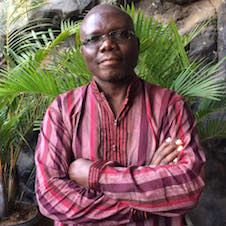 My doctoral thesis is entitled Arts, Peacebuilding and Decolonization: A Comparative Study of Parihaka, Mindanao and Nairobi. Deploying a decolonizing lens, the study explored how arts-based initiatives, while composing works and processes of meaning, beauty, and imagination, simultaneously work towards breaking the apparent cycles of violence in 'post-colonial' contexts.
My doctoral thesis is entitled Arts, Peacebuilding and Decolonization: A Comparative Study of Parihaka, Mindanao and Nairobi. Deploying a decolonizing lens, the study explored how arts-based initiatives, while composing works and processes of meaning, beauty, and imagination, simultaneously work towards breaking the apparent cycles of violence in 'post-colonial' contexts.
The findings from Parihaka (Aotearoa/New Zealand), Mindanao (southern Philippines) and Nairobi (Kenya) clearly demonstrate that these Indigenous cultures of peace and nonviolence were, and continue to be, encoded in orature and other hybridized arts. Therefore, Indigenous peace traditions, arts and culture need to elevated from the footnotes to the text of the discourse of building peace and building justice so that genuine conversations of peace approaches can happen at all levels.
After completing my doctoral studies in early 2017, I returned to Kenya where I continue to function as a storyteller, artist, teacher and scholar in arts, peacebuilding and social transformation. After publishing my doctoral thesis, I plan to return to join one of the Kenyan universities and do what I love most: teach!
Amie Kirkham
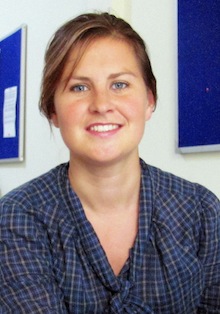 Soon after submitting my Masters thesis at Te Ao o Rongomaraeroa | National Centre for Peace and Conflicts Studies I was lucky enough to be offered an internship opportunity with the Te Ao o Rongomaraeroa | National Centre for Peace and Conflict Studies in Cambodia, provided I could stay for at least three months. After editing research papers in preparation for publication for the first eight weeks I had the opportunity to travel to Yangon, Myanmar and assist with a training workshop with young democracy leaders, teaching conflict transformation skills.
Soon after submitting my Masters thesis at Te Ao o Rongomaraeroa | National Centre for Peace and Conflicts Studies I was lucky enough to be offered an internship opportunity with the Te Ao o Rongomaraeroa | National Centre for Peace and Conflict Studies in Cambodia, provided I could stay for at least three months. After editing research papers in preparation for publication for the first eight weeks I had the opportunity to travel to Yangon, Myanmar and assist with a training workshop with young democracy leaders, teaching conflict transformation skills.
I am now working as CPCS's Listening Project Coordinator. Listening projects use listening methodology, conducting informal conversation style interviews that gather a wide range of opinions and identify key themes that are held by a wide group of people. CPCS uses listening projects to elevate voices from inside Myanmar that are not being heard, particularly in relation to the Myanmar peace process, aiming to build a more inclusive peace process.
I feel very lucky to have been incorporated into the CPCS team and really enjoying working at CPCS. It is a vibrant, supportive and encouraging environment and I am learning an enormous amount about practical peacebuildng. A publication that I have been coordinating and writing was published in May 2014. It showcases the perspectives of low ranking soldiers across six armed groups in the Myanmar Peace Process and represents over one hundred conversations across the Myanmar conflict.
My latest publication results from 111 conversations with a cross-section of people living in Karen (Kayin) State, to better understand different views on the Myanmar peace process and their current needs. Using listening methodology it draws on insights and wisdom of people directly affected by ongoing conflict and the Myanmar peace process.
Hyukmin Kang
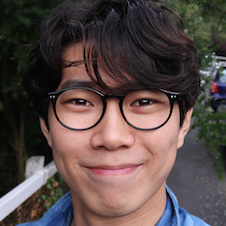
As one of the blessed early-stage academics, I embarked on my PhD journey at the National Centre for Peace and Conflict Studies (NCPACS) on September, 2017. At the Centre, I focus on the dynamics between religious narrative and forgiveness in reconciliation processes. Borrowing theological discourses, as well as Dialogical Self Theory, I explore how religious individuals who are victimised by political or collective violence cope with their deep trauma and desires for vengeance when they meet religious calls for forgiveness.
Prior to my PhD research at NCPACS, I studied theology in South Korea and ecumenical studies in University of Bonn, Germany. After conducting my first Masters degree, I switched my academic field from theological studies to peace and conflict studies, pursuing my second masters at the Irish School of Ecumenics, Trinity College Dublin, Ireland. My two Masters theses are entitled “The Religious Factors in the Balkan Conflict since the 1990s" and “Transitional Justice and Reconciliation in Northern Ireland.”
Apart from my academic journey, I have experienced a variety of religious education and worked for various NGOs in different countries. Recently, I have been involved in a genocide research group and a legislation network for the Truth and Reconciliation Commissions in South Korea.
Rachel Laird
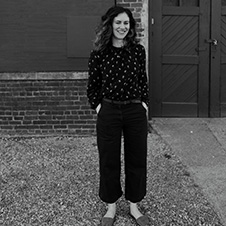
Rachel began her PhD With the National Centre for Peace and Conflict Studies in February 2018. Her dissertation centres on the question “can engaging other through dialogic encounters within an online environments enable conditions for positive peace?” She is exploring encounters with other in online spaces through dialogic practice and dialogue theory based on the work of Martin Buber and Paulo Freire. She is supervised by Dr. Katerina Standish, Dr. Heather Devere, and Dr. Rachel Rafferty.
Rachel's 14 year career has spanned roles in international business development and operations, communications consultation, non-profit work related to youth programs, and community development work related to mental health and addictions. She has a MA in Human Security and Peacebuilding from Royal Roads University, British Columbia.
Liesel Mitchell
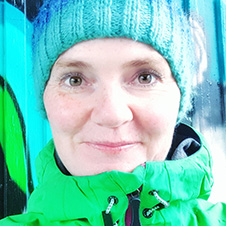
Liesel Mitchell is a part-time PhD candidate, with a research focus on nonviolent discipline in nonviolent campaigns and Positive Peace in post-nonviolent campaigns. She is interested in exploring how these two strands of research help inform each other using Integral Theory as a theoretical and methodological framework.
When Liesel is not working on her thesis, she works part-time remote research/consulting for an Auckland urban strategy studio. Liesel plans to finish her thesis in 2020.
Obinna Nweke
Details to come.
Samwel Oando
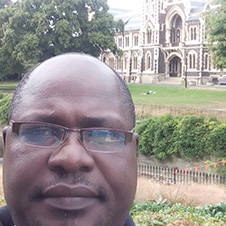
Samwel commenced PhD studies at the NCPACS in 2019. He is a Kenyan national, with previous research experience of 15 years in Africa. Some of the research on which he has worked include being Research Coordinator for 'Stop Violence Against Girls in School (SVAGS)', [a project implemented by ActionAid in collaboration with the Catholic University of Eastern Africa (CUEA)]. He also developed a research project on 'Youth Inclusion in Countering Violent Extremism', implemented in the IGAD region, in partnership with the Organization for Social Science Research in Eastern and Southern Africa (OSSREA). It is from such projects that he managed to co-author several research articles (available online). His field practice on peacebuilding comprise working as the Chief Executive Officer (CEO) at Peace and Development Network (PeaceNet), from where he also served as a member of the UWIANO Platform for Peace, in Kenya. Samwel has Master of Arts (MA) in 'Gender Women and Development Studies' from Egerton University. His future research interests cut across gender equality and equity; gender mainstreaming in peacebuilding; and on indigenous conflict transformation approaches to countering violent extremism.
Alejandra Ortiz Ayala
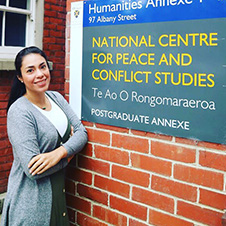
Alejandra Ortiz-Ayala is a PhD Student at the National Centre of Peace and Conflict studies working on the role of the state security sector on the perpetuation of political violence in post-conflict contexts.
She holds a Master and Bachelor degree in Political Science with minors in Comparative Politics and Political Theory. Before she starts her PhD journey, she spent some years in Colombia, where she worked as a Lecturer, Research and Consultant for national and international organizations.
Her current academic research interest incorporates three research areas, with the overall goal of preventing violence. First, she has studied the role of the security sector in peace processes, including transitional justice, state-building and post-war violence, mainly in Latin America. Second, she has analyzed the influence of ideology on armed groups behaviour and their relationship with civilians. Third, she was involved in research projects related to reconciliation between victims and perpetrators, and social and political reintegration of ex-combatants from non-state armed groups.
She has also been interested in topics related to public opinion and political behaviour.
Finally, in her research experience, she uses mixed-methods – including lab-in-the-field experiments, survey experiments, surveys and interviews.
Jeremy Simons
Jeremy Simons is a trainer, consultant, and researcher with expertise in Conflict Transformation (CT), Restorative Justice (RJ), Appreciative Inquiry (AI), and accompanying Indigenous Peoples (IP) in peacebuilding advocacy.
Born and raised in the Philippines, Jeremy earned a BA in International Affairs (1997, Gordon College USA) and MA in Conflict Transformation (2002) from the Center for Justice and Peacebuilding at Eastern Mennonite University. Afterward completing his graduate studies, Jeremy, along with his family, lived in Denver (USA) for 7 years in an urban poor community, accompanying various organizations as a community organizer and restorative justice coordinator. Between 2004-08, in partnership with the local Victim-Offender Reconciliation Program, Denver Public Schools, and the advocacy organization Padres Unidos, he helped develop and implement the first large scale, urban, public school district restorative justice program in the United States.
In 2008 Jeremy returned to the Philippines as a development consultant and trainer, where he co-developed the Community-Based Restorative Justice Course at the Mindanao Peacebuilding Institute while working in monitoring and evaluation of the institute's resource-based conflict transformation program. Jeremy has supported asset-based community development programs among Lumad (IP) and Moro (Muslim) communities of Mindanao and has conducted RJ, CT, and AI training and workshops in various academic, organizational, religious, and community organizations across the Philippines. From 2014-16 he taught as adjunct faculty of conflict transformation at the Asian Theological Seminary in Quezon City, Philippines. Jeremy helped edit the publication "Moving Beyond: Towards Transitional Justice in the Bangsamoro" and has been published in various print and on-line media, in particular for the mindanews.com information service. He has presented at conferences in Japan (2014), Bangladesh (2015), and Otago (2017), and his doctoral research revolves around the elucidation of restorative leadership for transformative justice in the Asian and Mindanao context.
Heather Tribe
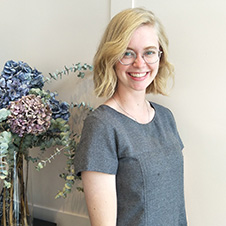
Heather comes from Waitākere, Tāmaki Makaurau. Upon completing her masters in the National Centre for Peace and Conflict studies in 2018 she returned home and spent the following year working in a food rescue charity (Fair Food – give us a like on Facebook or Instagram!) – directly combating food insecurity in her home community. She still works alongside the charity and returned to NCPACS to begin her PhD journey in May 2019. Her background has always been at the intersection of the environmental sciences and society, with particular concern for the impacts of climate change in the greater Pacific region. Her interest in food security has flourished through her work both in the food rescue charity in Waitākere and during her time working in community kitchens in the Calais refugee camps. Her PhD focuses on climate change induced food insecurity and the correlated increases in gender inequality and gendered violence.
Angelina Mnyanyi
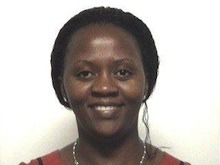 After gaining a Bachelor of Law (LLB) From University of Dar es Salaam, Tanzania, I did my Postgraduate Diploma in Peace and Conflict Studies at Otago University (2010). I completed my Masters with Peace and Conflict Studies in 2014 on the subject of international mediation.
After gaining a Bachelor of Law (LLB) From University of Dar es Salaam, Tanzania, I did my Postgraduate Diploma in Peace and Conflict Studies at Otago University (2010). I completed my Masters with Peace and Conflict Studies in 2014 on the subject of international mediation.
What I really like about the programme is for me to be able to demonstrate a genuine interest in a wide range of areas of conflict both micro and macro which for sure can be attractive to potential employers in my near future. I thoroughly enjoyed my programme and particularly liked the way that the Centre for Peace Studies papers opened my eyes to different ways of viewing the world. The papers were both interesting and relevant to my future careers, and the work placements gave me the first opportunity to test myself on my mediation skills.
I really enjoyed the contact with my lecturers, all of whom were so approachable and helpful in terms of learning and discussing career paths. I love every moment I spent with my classmates.
I also like the fact that my programme allows me to work in different countries. I will always be thankful for the knowledge, skills, confidence, and support I received during my time at Otago. I recommend the programmes to anyone considering a career in Peace and Conflict.
Anne-Marie Judson
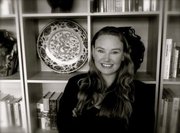 After completing my MA(R2P) and PgDip (Human Security) at Te Ao o Rongomaraeroa | National Centre for Peace and Conflicts Studies, I decided to further my international law interest and have returned to complete an LLB at Te Piringa Law faculty (Waikato University). At the same time I am volunteering as a client interviewer with Bay Community Law in Tauranga. I have recently been selected to the U.S. Embassy student advisor program. My interests and specialist knowledge lie within the confines of International Humanitarian intervention, International law, R2P, Human security and the state of emergency.
After completing my MA(R2P) and PgDip (Human Security) at Te Ao o Rongomaraeroa | National Centre for Peace and Conflicts Studies, I decided to further my international law interest and have returned to complete an LLB at Te Piringa Law faculty (Waikato University). At the same time I am volunteering as a client interviewer with Bay Community Law in Tauranga. I have recently been selected to the U.S. Embassy student advisor program. My interests and specialist knowledge lie within the confines of International Humanitarian intervention, International law, R2P, Human security and the state of emergency.
Dr Christopher Masters
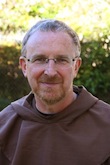 As a Franciscan friar (a member of the Anglican Franciscans – the Society of St Francis), I wanted to explore some contemporary aspect of Franciscan peacemaking. My studies at Te Ao o Rongomaraeroa | National Centre for Peace and Conflicts Studies (2011-2015) led to my PhD thesis, “Instruments of Peace?” - Franciscans as Peacemakers in Sri Lanka During and After the Civil War which explored the responses of Franciscan sisters and friars in Sri Lanka to the protracted civil war in that country. The particular aspects looked at were the influence of faith in sustained peacemaking, the relationship of internal community relationships to external peacemaking, and how knowledge of the historic Franciscan peace tradition informed and nurtured peacemaking today.
As a Franciscan friar (a member of the Anglican Franciscans – the Society of St Francis), I wanted to explore some contemporary aspect of Franciscan peacemaking. My studies at Te Ao o Rongomaraeroa | National Centre for Peace and Conflicts Studies (2011-2015) led to my PhD thesis, “Instruments of Peace?” - Franciscans as Peacemakers in Sri Lanka During and After the Civil War which explored the responses of Franciscan sisters and friars in Sri Lanka to the protracted civil war in that country. The particular aspects looked at were the influence of faith in sustained peacemaking, the relationship of internal community relationships to external peacemaking, and how knowledge of the historic Franciscan peace tradition informed and nurtured peacemaking today.
In 2017 I was elected international leader of the Society of St Francis. Although I now have no opportunity to follow peace studies in an academic context my work and travel give me the opportunity to see first-hand the issues of justice, peace and environmental concerns which are part of the situation of our brothers round the world and to help promote concern and advocacy for these issues. I also try to encourage our brothers to live peacefully with each other since this doesn't happen automatically for Franciscans! While in Dunedin I was able to continue with my interest in the Alternatives to Violence Project by being part of the facilitation team on several workshops and I would like to continue with this if the opportunity is available.
Dr Chin-Kuei Tsui
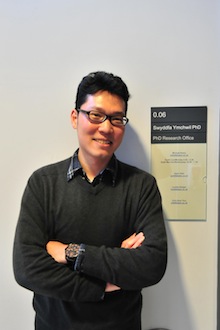 I graduated from National Chengchi University, Taipei, Taiwan, with a Bachelor Degree in Arabic Language and Literature, and a Master Degree in International Relations. Prior to joining the National Centre for Peace and Conflicts Studies, I completed two-years of my PhD studies at the Department of International Politics, Aberystwyth University, in Wales. My research interests are Critical Terrorism Studies, Critical Discourse Analysis, International Relations Theory, and U.S. Foreign and Security Policies.
I graduated from National Chengchi University, Taipei, Taiwan, with a Bachelor Degree in Arabic Language and Literature, and a Master Degree in International Relations. Prior to joining the National Centre for Peace and Conflicts Studies, I completed two-years of my PhD studies at the Department of International Politics, Aberystwyth University, in Wales. My research interests are Critical Terrorism Studies, Critical Discourse Analysis, International Relations Theory, and U.S. Foreign and Security Policies.
My PhD thesis focused on President Clinton's terrorism and counter-terrorism discourses and his counter-terrorism policy . The thesis aims to demonstrate a clear continuity of the U.S.-led war on terror from Ronald Reagan, Bill Clinton, through to George W. Bush. By carefully examining U.S. terrorism and counter-terrorism discourses with the aid of critical discourse analysis, this research argues and illustrates that U.S. terrorism discourse functions to maintain a counter-terrorism 'regime of truth', and places boundaries around what can meaningfully be said and understood about the subject of terrorism.
Publications:
Tsui C. K. (2013). Framing the Threat of Rogue States: Iraq, Iran and President Clinton's Dual-Containment Approach to Middle East Peace. This paper will be presented at the 2013 Australian Political Studies Association (APSA) Conference (Murdoch University, Perth, Australia, September 30th, 2013).
Tsui C. K. (2013). Rethinking the Discursive Construction of Terrorism and Counterterrorism: What Discourse Showed, Explained, and Hid. Paper presented at Centre Research Seminar (National Central for Peace and Conflict Studies, University of Otago, May 16th, 2013).
Tsui C. K. (2013). Writing National Identity: Discourses, Narratives, and the Social Construction of Terrorism as a Negative Ideograph. Paper presented at the 2013 International Studies Association (ISA) Annual Convention (San Francisco, California, USA, April 5th, 2013). Available at: http://files.isanet.org/ConferenceArchive/4a893de9c6e54b1abd1999f228f54aca.pdf
Tsui, C. K. (2012). The Myth of George W. Bush's Foreign Policy Revolution: Reagan, Clinton, and the Continuity of the War on Terror. e-International Relations. December 2nd, 2012. Available at: http://www.e-ir.info/2012/12/02/the-myth-of-george-w-bushs-foreign-policy-revolution-reagan-clinton-and-the-continuity-of-the-war-on-terror/
Tsui, C. K. (2012). Framing the Threat of Catastrophic Terrorism: Discourse, Intertextuality, and President Bill Clinton's Counterterrorism Initiatives. Paper presented at the 2012 New Zealand Political Studies Association (NZPSA) Conference (Victoria University of Wellington, November 27th, 2012)
Tsui, C. K. (2012). Writing Wars on Terrorism from Ronald Reagan, Bill Clinton and through to George W. Bush: Discourses, Narratives and National Identity. Paper Presented at Power and Politics Conference 2012 (University College, University of Otago, July 3rd 2012)
Tsui, C. K. (2012). Writing the New Terrorist Threat in the Post-Cold War Era: Clinton and the Construction of the Catastrophic Terrorism. Paper Presented at Centre Research Seminar (National Centre for Peace and Conflicts Studies, University of Otago, May 17th 2012)
Tsui, C. K. (2011). Tracing the Discursive Origins of the War on Terror: Clinton and the Construction of the Terrorist Threat in the Post-Cold Era. Paper Presented at A Decade of Terrorism Conference (University of Strathclyde, Glasgow, September 8-11th 2011
Dody Wibowo
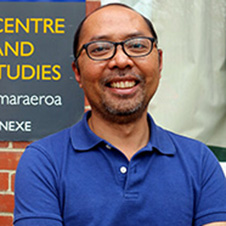
Dody Wibowo comes from Indonesia and holds a Master's Degree in Peace Education from the University for Peace, Costa Rica. He has worked in several institutions, including Peace Brigades International, Save the Children, Ananda Marga Universal Relief Team, and Universitas Gadjah Mada. He has completed work for UNICEF in Indonesia and the Centre for Peace and Conflict Studies in Cambodia.
Dody is conducting his PhD research at Te Ao o Rongomaraeroa | National Centre for Peace and Conflict Studies through a Rei Foundation scholarship. His research explores factors contributing to school teachers' capacity in delivering peace education.
Dr Ellen Furnari
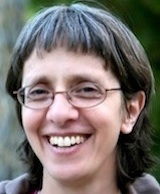 Before coming to the Centre to work on a PhD, I worked with in the field of unarmed civilian protection with the Nonviolent Peaceforce in Sri Lanka and elsewhere. Based on early work, I was particularly interested in what was being learned in the direct practice, and in evaluation. Returning to the US I worked with a number of organisations on strategy, program design and learning and evaluation.
Before coming to the Centre to work on a PhD, I worked with in the field of unarmed civilian protection with the Nonviolent Peaceforce in Sri Lanka and elsewhere. Based on early work, I was particularly interested in what was being learned in the direct practice, and in evaluation. Returning to the US I worked with a number of organisations on strategy, program design and learning and evaluation.
My PhD thesis is titled "Understanding effectiveness in peacekeeping operations: Exploring the perspectives of frontline peacekeepers" (http://otago.ourarchive.ac.nz/handle/10523/4765) . I used constructed grounded theory as research methodology and interviewed over 50 former and current peacekeepers who served as military, police, civilian, or unarmed civilian peacekeepers.
While waiting for my examination results, and since graduating, I have become an adjunct faculty at Webster University and JFK University, both in the US. I also consult with the Nonviolent Peaceforce, part of a team working on a curriculum for unarmed civilian peacekeeping and protection. This course will be sponsored by UNITAR, a UN training agency. Additionally, I have written a number of papers (some of which can be found here) and a chapter for a book to be published in 2015. Several articles are under review for publication.
In addition, I am using the skills I learned in Dunedin with the Alternatives to Violence Program (AVP), helping to facilitate AVP programs in a prison near where I currently live. Working there with AVP has led to my also teaching Buddhism twice a month there.
It was a profound honor to be a student at the Centre, and my time there challenged me to grow in both academic and personal realms. I am deeply appreciative of the opportunity to return to academia after many years in the field, and to go out again with new perspectives and skills.
Recent publications:
Ellen Furnari and John Lindsay-Poland (2016): Wielding Nonviolence in the midst of violence: Case studies of good practices in unarmed civilian protection, Books on Demand, 2016, ISBN 3741219959, 9783741219955
Roy Tamashiro & Ellen Furnari (2015): Museums for peace: agents and instruments of peace education, Journal of Peace Education, DOI: 10.1080/17400201.2015.1092712
Relationships are Critical for UCP, Peace Review: A Journal of Social Justice, http://www.tandfonline.com/eprint/hkG4Wj7hnvGd9Agz9e56/full
Securing space for local peacebuilding: the role of international and national civilian peacekeepers, Peacebuilding, http://www.tandfonline.com/eprint/6zUISW2AMG6NaVrm9Hb2/full
Joe Llewellyn
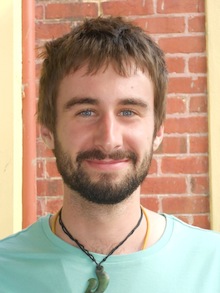 I completed my PhD at Te Ao o Rongomaraeroa | National Centre for Peace and Conflict Studies in 2018 with the support of a scholarship from the Rei Foundation. Previously, I completed an MA and a PGDip at Te Ao o Rongomaraeroa | National Centre for Peace and Conflicts Studies.
I completed my PhD at Te Ao o Rongomaraeroa | National Centre for Peace and Conflict Studies in 2018 with the support of a scholarship from the Rei Foundation. Previously, I completed an MA and a PGDip at Te Ao o Rongomaraeroa | National Centre for Peace and Conflicts Studies.
My early research focused on nonviolence and nonviolent resistance movements. My most recent project looked at the effects of different types of nonviolent revolutions on democratisation. Before this I explored the role of Gene Sharp's work on the successful 'Otpor' movement in Serbia. Prior to my work in peace and conflict studies, I completed an undergraduate degree in occupational therapy and I am currently registered as a non-practicing occupational therapist. I also have a background in peace activism.
My doctoral research explores anarcho-pacifist nonviolence, which explicitly rejects all forms of direct, structural and cultural violence as a means and as an end. I am exploring how anarcho-pacifism can be utilised in order to create peaceful societies. As part of this research I am conducting interviews with anarcho-pacifists and proponents of Gandhian nonviolence in Aotearoa New Zealand, India, and the United States.
Jonathan Sutton
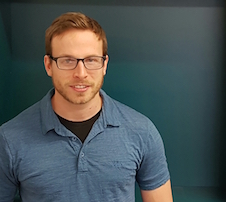 I completed my doctoral thesis “Authoritarian Politics and the Outcome of Nonviolent Uprisings” in 2018 with the support of funding from the Rei Foundation. My research examined how internal power struggles within authoritarian governments can affect the success or failure of nonviolent 'people power' movements that aim at regime change. Using a mixed methods approach based on statistical analysis, in-depth case studies, and field research, I found that autocrats who consolidate their personal control of government are more likely to lose power when challenged by mass protest movements. I am currently working on projects related to civil resistance, peacebuilding, and Southeast Asian politics, while pursuing postdoctorate opportunities.
I completed my doctoral thesis “Authoritarian Politics and the Outcome of Nonviolent Uprisings” in 2018 with the support of funding from the Rei Foundation. My research examined how internal power struggles within authoritarian governments can affect the success or failure of nonviolent 'people power' movements that aim at regime change. Using a mixed methods approach based on statistical analysis, in-depth case studies, and field research, I found that autocrats who consolidate their personal control of government are more likely to lose power when challenged by mass protest movements. I am currently working on projects related to civil resistance, peacebuilding, and Southeast Asian politics, while pursuing postdoctorate opportunities.
My research interests include comparative authoritarianism, mainland Southeast Asian politics, repression and dissent, and nonviolent/civil resistance. My work has appeared in the Journal of Peace Research.
Dr Michael Fusi Ligaliga
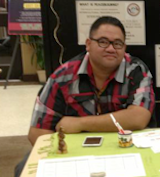 My doctoral thesis examines whether there are aspects within Faa Samoa that influence domestic violence in Samoa. Numerous researches have examined Samoa's protective and preventative mechanisms against Domestic violence that are specific to Faa Samoa, but little is known whether or not there are other aspect(s) within Faa Samoa that contribute(s) or influence(s) domestic violence in Samoa. My research employs Galtung's Typology of Violence to understand Samoa's domestic violence issues. Galtung suggests there are three types of violence—direct, structural and cultural and that direct violence is reinforced by structural and cultural violence. The aim of the research is to examine whether or not there are example(s) of structural and cultural violence in Faa Samoa and if they (structure and cultural violence) reinforce direct violence (domestic violence) as suggested by Galtung's Typology of Violence.
My doctoral thesis examines whether there are aspects within Faa Samoa that influence domestic violence in Samoa. Numerous researches have examined Samoa's protective and preventative mechanisms against Domestic violence that are specific to Faa Samoa, but little is known whether or not there are other aspect(s) within Faa Samoa that contribute(s) or influence(s) domestic violence in Samoa. My research employs Galtung's Typology of Violence to understand Samoa's domestic violence issues. Galtung suggests there are three types of violence—direct, structural and cultural and that direct violence is reinforced by structural and cultural violence. The aim of the research is to examine whether or not there are example(s) of structural and cultural violence in Faa Samoa and if they (structure and cultural violence) reinforce direct violence (domestic violence) as suggested by Galtung's Typology of Violence.
I received my BA in Political Science and International Peacebuilding from Brigham Young University Hawaii (BYUH) in 2010. In 2012, I completed my PGDip and MA from Te Ao o Rongomaraeroa | National Centre for Peace and Conflict Studies. I then returned to BYU Hawaii as a lecturer where I taught peace and conflict theory, indigenous peacebuilding and mediation classes. During my time at BYU Hawaii I became the Acting Director of the David. O McKay Centre for Intercultural Understanding which is the Peace Centre for BYU Hawaii. In 2015, I returned to Te Ao o Rongomaraeroa | National Centre for Peace and Conflicts Studies to pursue my PhD.
Publications:
Ligaliga, M.F., & Devere, H. (2013). Covenant or Contract? The Treaty of Friendship between New Zealand and Samoa 1962. The Journal of Pacific Studies, 33 (2), 116-130.
Lectures
Ligaliga, M.F (2017, May 22) Indigenous Peacebuilding methods: Understanding Va: A Samoan Perspective. Lecture presented at Te Ao o Rongomaraeroa | National Centre for Peace and Conflict Studies, University of Otago, Dunedin, New Zealand
Presentations
Ligaliga, M. F (2015) Faa Samoa? Peacebuilder or Peacebreaker? Proceedings of the Pacific Postgraduate Symposium: Pacific Voices VIII. Dunedin, New Zealand: Pacific Island Centre, University of Otago.
Dr Monica Carrer
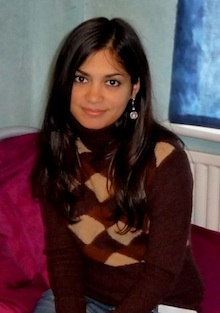 My PhD research project focuses on the Maoist conflict in India, more precisely in rural areas of West Bengal. My study places the local civilian groups at the core of the analytical framework, and seeks to understand their role in shaping the dynamics of conflict at a local level and in building a discourse of peace. Through this study I seek to go beyond predominant myths and narratives on tribal and poor peasants, and achieve a deep understanding of the experience, perceptions and attitudes of these people.
My PhD research project focuses on the Maoist conflict in India, more precisely in rural areas of West Bengal. My study places the local civilian groups at the core of the analytical framework, and seeks to understand their role in shaping the dynamics of conflict at a local level and in building a discourse of peace. Through this study I seek to go beyond predominant myths and narratives on tribal and poor peasants, and achieve a deep understanding of the experience, perceptions and attitudes of these people.
My Indian origins and my experience in India gave me the inspiration and motivation to study human rights and peace and conflict studies. I graduated with full marks in Political Science, International Relations and Human Rights from the University of Padua (Italy) in 2010 and achieved a MA in Conflict, Security and Development from King's College London with Distinction.
Since I joined National Centre for Peace and Conflict at the University of Otago I found myself surrounded by people genuinely committed to give a contribution to peace. As a result, the Centre is not only in a very rich and stimulating environment from an academic point of view, but it is also also very friendly, open and welcoming. Coming to the other corner of the world for this adventure was definitely worthwhile.
Dr Nijmeh Ali
 I grew up in Haifa, in an internal refugee family originally from Mia'ar, a small village that was destroyed during the 1948 war, in the Galilee of Palestine.
I grew up in Haifa, in an internal refugee family originally from Mia'ar, a small village that was destroyed during the 1948 war, in the Galilee of Palestine.
I finished my B.A degree at Haifa University, studying Political Science, Sociology & Anthropology. I completed my MA research in the Political Science Department at the Hebrew University, specializing in “Democracy and Citizenship Theories”. I am interested in civic education, and its impact on forming and framing a diverse citizenship contexts, while asking the question of, “who and what” is a “good citizen”. I believe in promoting citizenship education through citizenship engagement; because of that I affiliated myself with practical activism.
My MA research is based on social and political movement theory, emphasizing the diverse aspects of resistance in the Palestinian struggle, through investigating the popular culture and the particularity of local activism as resisting tools for statehood in front of the Israeli occupation. Also, as a trigger for political and social behavior change among Palestinians, in the internal Palestinian society during liberation process. My case study is the first Intifada, and “traditional music” as a political active player in reshaping the Palestinian struggle, politically and socially.
Paul Bedggood - Ngapuhi
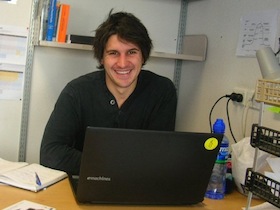 Before coming to the Te Ao o Rongomaraeroa | National Centre for Peace and Conflicts Studies I worked in Southern African countries assisting with the implementation of primary health education programmes. I completed my Master's thesis at the Te Ao o Rongomaraeroa | National Centre for Peace and Conflicts Studies where I evaluated the New Zealand Aid Programme within a peace studies framework. I then returned to the field of primary health, working alongside an NGO in Bougainville, Papua New Guinea, which disseminates basic health education to people living in outliner communities. For a year I assisted with the organisation's planning structures, implementation of health workshops, and the restructure of their monitoring and evaluation systems.
Before coming to the Te Ao o Rongomaraeroa | National Centre for Peace and Conflicts Studies I worked in Southern African countries assisting with the implementation of primary health education programmes. I completed my Master's thesis at the Te Ao o Rongomaraeroa | National Centre for Peace and Conflicts Studies where I evaluated the New Zealand Aid Programme within a peace studies framework. I then returned to the field of primary health, working alongside an NGO in Bougainville, Papua New Guinea, which disseminates basic health education to people living in outliner communities. For a year I assisted with the organisation's planning structures, implementation of health workshops, and the restructure of their monitoring and evaluation systems.
While I am continuing to work alongside a number of actors within the health field, I'm now predominantly working with an eco-tourism association located within the interior of Bougainville. The locally owned and operated organisation is comprised of previous warring groups and sees ex-combatants from opposing sides of the civil war working together. By establishing a variety of hiking options in and around Central Bougainville, the eco-tourism group hopes to establish a means of generating income and preserving culture in an environment increasingly under pressure from cash-crop farming and impinging social issues. Living and working alongside the Rotokas people, I am primarily assisting with GPSing and mapping, organisation planning and development, and the implementation of eco-tourism awareness workshops.
I feel privileged to have studied at the Te Ao o Rongomaraeroa | National Centre for Peace and Conflicts Studies, and would like to return to Dunedin to further my studies in the future.
Dr Prakash Bhattarai
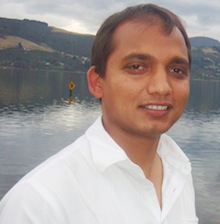 In 2014, I completed my PHD candidate in Peace and Conflict Studies at University of Otago- National Centre for Peace and Conflict Studies, Dunedin, New Zealand. I hold two Masters Degrees, the first one in Population Studies from Tribhuvan University (TU) Kathmandu, Nepal in 2005 and second one in International Peace Studies from the Kroc Institute of International Peace Studies at University of Notre Dame, USA in 2010.
In 2014, I completed my PHD candidate in Peace and Conflict Studies at University of Otago- National Centre for Peace and Conflict Studies, Dunedin, New Zealand. I hold two Masters Degrees, the first one in Population Studies from Tribhuvan University (TU) Kathmandu, Nepal in 2005 and second one in International Peace Studies from the Kroc Institute of International Peace Studies at University of Notre Dame, USA in 2010.
I have a decade of professional and leadership experience in the areas of democracy, human rights, peacebuilding, migration, and youth.My work in Nepal has been in a leadership and managerial role in both national and international organizations. From July-December 2009, I got a practical action opportunity to work at Catholic Relief Service, Mindanao, Philippines, where I was engaged in a research project on third party intervention in the Mindanao peace process and the monitoring and evaluation of the impact of peace education program in Mindanao, Philippines.
As part of my PhD dissertation, I focused on a research project that seeks to explain the coordination dynamics of third party intervention in conflict-affected countries. Research demonstrates the levels, trends, effectiveness, and other dimensions of coordination and cooperation among peace interveners and the problems and prospects associated with multiparty intervention in the resolution of a conflict. This research was primarily based on field research in Nepal and the Philippines.
Rachel Fairhurst
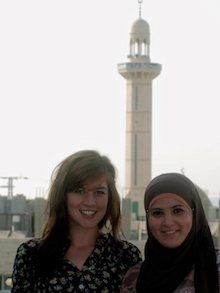 After graduating with a Postgraduate Diploma in Peace and Conflict Studies in 2010, I traveled on a Fulbright scholarship to the United States to complete a MA in International Peace Studies from the Kroc Institute for International Peace Studies, University of Notre Dame.
After graduating with a Postgraduate Diploma in Peace and Conflict Studies in 2010, I traveled on a Fulbright scholarship to the United States to complete a MA in International Peace Studies from the Kroc Institute for International Peace Studies, University of Notre Dame.
I have worked in the West Bank at ARIJ, a sustainable development organization. Currently I'm a research associate at the Kroc Institute, where I work on policy-related issues such as sanctions and security in Iran, as well as civil society efforts to engage with regional and international organizations on issues of peacebuilding and human security.
Scott Pearse-Smith
 Scott completed his Master of Arts at Te Ao o Rongomaraeroa | National Centre for Peace and Conflict Studies in 2011. Scott's masters research investigated the impact of hydro-development on the peace and conflict environment of the Mekong Basin.
Scott completed his Master of Arts at Te Ao o Rongomaraeroa | National Centre for Peace and Conflict Studies in 2011. Scott's masters research investigated the impact of hydro-development on the peace and conflict environment of the Mekong Basin.
After graduating, he published a number of journal articles:
Pearse-Smith, S. W. D. (2014). The return of large dams to the development agenda: A post-development critique. Consilience: The Journal of Sustainable Development, 11(1): 123–131.
Bobekova, E., Pearse-Smith, S. W. D., Svensson, I. (2013). Rivers of peace: The East Asian peace and institutionalised Mekong River cooperation. European Journal of East Asian Studies, 12(1): 7–34.
Pearse-Smith, S. W. D. (2012). 'Water war' in the Mekong Basin? Asia Pacific Viewpoint, 53(2): 147–162.
Pearse-Smith, S. W. D. (2012). Lower Mekong Basin hydropower development and the trade-off between the traditional and modern sectors: 'Out with the old, in with the new'. The Asia-Pacific Journal, 10 (23): 1.
Pearse-Smith, S. W. D. (2012). The impact of continued Mekong Basin hydropower development on local livelihoods. Consilience: The Journal of Sustainable Development, 7(1): 73–86.
Dr Sylvia Frain
Sylvia studied with the Centre from October 2013 – February 2017.
She was recently awarded the Te Ara Auaha | Faculty of Design and Creative Technologies at Te Wānanga Aronui o Tāmaki Makau Rau | Auckland University of Technology, Strategic Research Investment Fund Postdoctoral Fellowship. Sylvia is currently with Te Amokura | Pacific Media Centre.
Sylvia's research profile can be found at this link: http://www.pmc.aut.ac.nz/profile/sylvia-frain
Robbie Francis
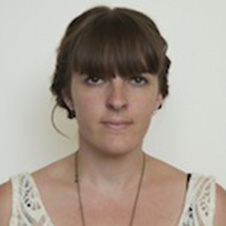
Robbie Francis is a 26-year-old kiwi who lives with phocomelia syndrome, which means she was born without most of the bones in her lower legs. After major reconstructive surgery she now wears a prosthetic limb called Lucy Leg and lives knowing that her other leg may also need to be amputated one day.
Despite living with a disability, Robbie's achievements have been recognised with prestigious awards, including a Rotary Ambassadorial Scholarship to study a Master's degree in International Conflict Resolution and Mediation at the University of Tel Aviv in Israel. More recently, Robbie returned from living in Mexico where she interned as a human rights monitor for Disability Rights International. Having witnessed first hand the appalling conditions that people with disabilities live in, Robbie decided she wanted to be an active part of the solution. In 2014 Robbie established The Lucy Foundation – an organisation that connects the dots between business, trade, employment, poverty and disability. The first Lucy project is based in southern Mexico and addresses the training, employment and human rights of indigenous persons with disabilities through organic coffee production.
Robbie's research focussed on human rights and the protection of people with disabilities during armed conflict.
Aidan Gnoth
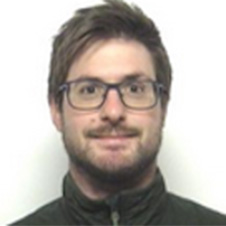
My research interests are on humanitarian intervention and peace operations and my doctoral project focuses on the ways in which academics seek to transform practice and theory in pursuit of a more positive and durable peace. I am particularly interested in how academics attempt to contest orthodox and mainstream approaches to peacebuilding which typically reify conflict promoting structural factors.
I finished my undergraduate studies (Politics with Honours) at Otago University in 2010 where my research dissertation focused on the interaction between regional organisations and the United Nations during peace operations in South Sudan and the Solomon Islands. In 2013 I completed my Masters thesis at Victoria University in Wellington (NZ) where I sought to understand how regional organisations (ASEAN, AU, and OAS) had interpreted the 'Responsibility to Protect' norm. During this time I worked as a course and tutor co-ordinator for several papers on security and International Relations and interned at the New Zealand Council for International Development. After completing my degree I worked as a political advisor in local government before moving back to Dunedin to undertake my Doctoral studies.
Marie Nissanka

Marie's background in commerce, development studies, and knowledge management are complemented by her work experience in the areas of strategy development, policy and business analysis in the public and non-profit sectors. Marie has over seven years of work experience in the New Zealand public sector, as a policy, reporting and business analyst. Her work predominantly involved qualitative and quantitative data analysis, results-based monitoring, as well as output and outcome evaluation.
Marie has also worked extensively in the non-profit sector, by conducting research, measuring outcomes and strategic planning. Marie's main research interests are reducing educational inequalities, multicultural education, action research, organisational learning, knowledge management and evaluation methodologies. Marie's Masters thesis investigated organisational learning in humanitarian organisations, while her PhD researches multiculturalism in the Citizenship Education curriculum in Sri Lanka.
Adan Suazo
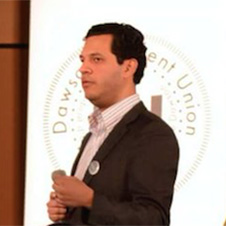
After finishing my graduate studies at the Department of Peace and Conflict Research at Uppsala University,Sweden, I returned to my hometown of Montreal to explore issues related to inclusion patterns in peace processes. During the last three years, my research has somewhat departed from the inclusion question, and has mainly focused on how environmental variables may be harnessed to increase the likelihood of peace in a conflict zone. This topic has led me to present my work in venues such as the Canadian Peace Research Association and the United Nations Framework Convention on Climate Change's Conference of Youth. I hold membership in the Canadian Peace Research Association, the Otago Energy Research Centre and the Loyola Sustainability Research Centre. For my doctoral degree at Te Ao o Rongomaraeroa | National Centre for Peace and Conflict Studies my research explored how qualitative and quantitative asymmetries in freshwater access may result in the emergence of structural violence.
Here is a selected list of my publications:
Suazo, Adan E. et al., Avoiding catastrophes: seeking synergies among the public health, environmental protection, and human security sectors, The Lancet Global Health, Vol.4, October 2016, pp. 680-681.
Suazo, Adan E., An Exploration of Water Cooperation and Intra-State Violence, Insight on Conflict, June 2015.
Suazo, Adan E., Demystifying the Wars of the Future: The Past and Current State of Water Conflicts, Insight on Conflict, March 2015.
Suazo, Adan E., Revisiting Resource Redistribution in Conflicts over Water, ReliefWeb, United Nations Office for the Coordination of Humanitarian Affairs, October 2014.
Suazo, Adan E., Tools of Change: Long-Term Inclusion in Peace Processes, Fletcher Journal of Human Security, Boston (United States), May 2013, pp. 5-27.
Suazo, Adan E., Political Deadlock in Libya and Syria, Conflict Trends, African Centre for the Constructive Resolution of Disputes, Durban (South Africa), April 2013."